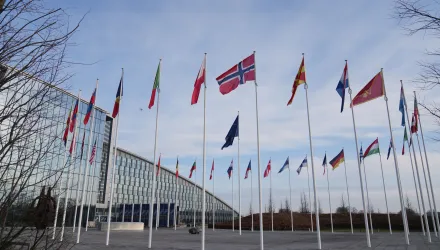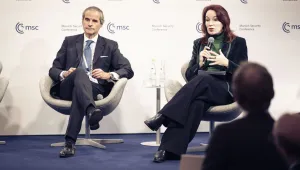By Nickolas Roth
Yesterday, the New York Times published an article revealing that, at the end of 2014, Russia plans to reduce its cooperation with the United States on securing nuclear materials within its borders. The United States and Russia have made substantial progress in securing nuclear material over the past two decades, but more work is needed. Halting cooperation not only risks future progress on reducing the risk of nuclear terrorism, but also jeopardizes progress to date.
Here is how Belfer Center experts responded to the announcement:
"President Obama should take a page from Ronald Reagan's book. Amidst the dangers of the Cold War, Reagan eagerly negotiated arms control agreements with the Soviet Union to reduce risks that accidents or miscalculations could lead to nuclear war while simultaneously pursuing a strategy to defeat the "evil empire." Imposing sanctions on Russia to punish its aggression against Ukraine does not require stopping scientific, technical, and security cooperation that advances American interests."
Graham Allison, Director, Belfer Center for Science and International Affairs
"Despite our differences, the United States and Russia, as the nations with the world’s largest nuclear stockpiles, have a responsibility to lead — to continue working together toward a world where all nuclear weapons and weapons-usable material worldwide are effectively and sustainably secured against the full spectrum of plausible threats. We worked together to build the global nonproliferation regime when our countries were locked in a global Cold War — we can and must work together to secure nuclear materials today. It’s time for the United States to propose a new agenda for fully equal U.S.-Russian cooperation, exchanging best practices, strengthening security culture, jointly developing new security and accounting technologies, helping other countries, and more. We should not allow nuclear security to be another victim of Russian aggression in Ukraine.”
Matthew Bunn, Professor of Practice, Harvard Kennedy School
"Responding to Russia's invasion of Ukraine, the US suspended most peaceful nuclear cooperation with Russia, while trying to preserve nuclear security cooperation. Now Russia is saying it may suspend nuclear security cooperation, including participation in the 2016 Nuclear Security Summit. The only way back now is progress toward a political deal between Kiev and the rebels, which could give both Washington and Moscow a basis for restoring nuclear cooperation. Unfortunately, Putin seems more interested in fostering political stalemate than political settlement in Ukraine. As a result, nuclear cooperation is likely to remain in the deep freeze for a long time to come."
Gary Samore, Executive Director for Research, Belfer Center for Science and International Affairs
"U.S.-Russian relations are at a post-Cold War nadir, and might worsen. What then to do about nuclear security cooperation? Moscow makes such work hard: Congress is in no mood to spend money in an expansionist Russia; the Ministry of Defense ended all cooperation at its sites; and, the Kremlin’s refusal to participate in the Nuclear Security Summit is short-sighted and spiteful. Yet, two facts abide. The state of Russian nuclear security is not what it should be, and helping to improve it is in the U.S. national security interest. Therefore, we must try."
William Tobey, Senior Fellow, Belfer Center for Science and International Affairs



